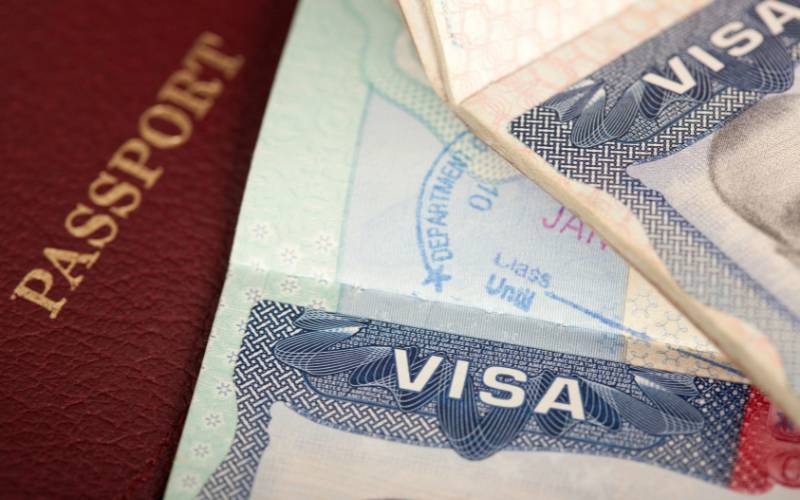When moving south, Canadian citizens often ask: should you invest in a U.S. business or work for a U.S. employer—and what are the US visa options for Canadian citizens? It’s not just about crossing a border, it’s about defining your future. There are various U.S. visa options to match your goals, whether chasing career advancement or building a business legacy.
The most relevant U.S. visa options for Canadian citizens include the TN, H-1B, and E-2 visas.
Understanding how these non-immigrant visas align with your long-term aspirations is crucial. Let’s break down the opportunities and implications so you can make a well-informed decision.
3 U.S. Visa Options for Canadian Citizens: TN, H-1B, and E-2
Canadian applicants benefit from unique access to U.S. visa categories, particularly compared to citizens of other countries. Whether you’re aiming to grow a career or invest in a business, these non-immigrant visa pathways offer strategic entry points into the United States.
TN Visa: Quick Entry for Qualified Professionals

The TN visa was born out of the USMCA agreement (formerly NAFTA), offering streamlined access to the U.S. labor market for Canadian and Mexican citizens in eligible specialty occupations such as healthcare, science, and law.
Why it works:
- Apply directly at the border—no petition, no backlog.
- There is no annual cap—meaning no lottery drama.
- Valid for three years with unlimited renewals (so long as the job remains the same).
Why it might not:
- It’s a non-immigrant visa, so there’s no direct path to permanent residency.
- It only covers certain professions, limiting career pivots.
- Changing employers or fields may require a new visa application or disqualify you.
This visa is ideal for Canadian professionals who want to hit the ground running in the U.S. job market but aren’t necessarily seeking a green card or immigration status upgrade—at least not right away.
H-1B Visa: A Career Move with a Green Card in Sight
The H-1B visa is one of the most recognized non-immigrant visa options for foreign nationals, particularly those with advanced degrees or specialty occupations like IT, engineering, or finance.
Why it works:
- Pathway to immigrant visas and green cards through employer sponsorship.
- Spouses (on H-4 visas) may qualify for work authorization.
- Strong fit for those with a job offer from a U.S. company in a high-demand profession.
Why it might not:
- Subject to an annual cap and a visa lottery, making the selection uncertain.
- The application process is expensive and time-sensitive.
- Job loss can result in an immediate change in immigration status.
For Canadian citizens seeking permanent residents’ status and career growth with a U.S. employer, the H-1B offers potential, but with hurdles.
E-2 Visa: For Business Ownership in the US

The E-2 Treaty Investor Visa is tailor-made for Canadian citizens with entrepreneurial ambitions and access to capital. If you’re ready to make a significant investment in a U.S. business—especially in franchising, this could be your ideal route. Here’s why:
Faster Business Launch
You don’t have to build everything from the ground up. The brand, systems, and supplier relationships are already in place. This allows you to launch your business faster and start generating revenue sooner. For E-2 visa applicants, that speed can be a major advantage.
Predictable Operational Procedures
Franchises come with documented processes for daily tasks like inventory management and customer service. You will not waste time figuring things out on your own. Instead, you can focus on running and growing the business with confidence.
Streamlined Training for Staff
Most franchises provide training programs and materials for employees. This makes it easier to onboard new hires. It also ensures that everyone delivers the same level of service, which helps maintain your business reputation from day one.
Leveraging Existing Marketing Materials
Franchises usually provide ready-to-use marketing assets. You get access to ads, templates, and campaigns designed by professionals. This saves you time and money while helping you promote your business right out of the gate.
Easier Financial Projections
With a proven business model and data from other franchisees, you’ll have a solid foundation for financial forecasting. This is especially helpful for your E-2 visa application. It also gives you more clarity when planning for growth or managing day-to-day finances.
Direct Support for Problem-Solving
When challenges come up, you’re not on your own. You can turn to the franchisor or connect with other franchisees who’ve faced similar issues. This built-in support network helps you solve problems faster and avoid costly mistakes.
Established Supplier Networks
The franchisor typically has pre-arranged deals with trusted suppliers. You benefit from better pricing and reliable delivery. That means fewer headaches and more time to focus on running the business.
Reduced Need for Extensive Market Research
Franchisors often do heavy research before expanding into a market. They’ve already identified strong locations and ideal customer groups. That reduces the burden on you and lowers the risk of launching in the wrong place.
Clearer Path to Profitability
Because the business model is already tested, you have a better shot at turning a profit sooner. That’s important not just for your bottom line but also for maintaining your E-2 visa. A stable, successful business supports long-term immigration goals.
Defined Exit Strategy (Potentially)
Some franchises include clear guidelines for selling your business in the future. That gives you a potential exit plan if you decide to move on. It’s often easier than trying to sell an independent business without support or structure.
Disadvantages:
No Direct Path to a Green Card
The E-2 visa doesn’t directly lead to permanent residency. You’ll need to explore other immigration options down the line if you want to become a permanent resident or U.S. citizen.
Financial Commitment Required
You must make a significant investment—a vague but essential requirement that means real money on the line. It’s not for the faint of capital.
Treaty Limitations
Only citizens of treaty countries like Canada are eligible. Those with dual citizenship in non-treaty nations may face added complications.
The Business Must Deliver
The business must be more than marginal. It should generate enough income to support the investor and dependents, and contribute to the U.S. economy.
Choosing Between Business and Career

Choosing the proper visa isn’t just paperwork. It’s a strategic decision that affects your future in the United States. For Canadian citizens looking to move south, understanding your options under U.S. immigration law is essential.
If you’re an entrepreneur ready to invest, the E-2 visa may be the right fit. It allows you to start and run a business in the U.S., which includes owning a franchise. This is a smart option for Canadians who want the support of an established brand and a faster path to opening their business.
If your goal is to build your career in a professional field, the TN visa offers a quick and flexible way to work in the U.S. It’s ideal for Canadians in certain occupations. Just keep in mind that it doesn’t lead to permanent residency.
For those thinking long-term, the H-1B visa is another option. It supports career growth and can eventually lead to a green card. However, it’s subject to an annual lottery, known as the diversity visa lottery, which makes it harder to get.
The immigration process can be complex, especially if you’re bringing your spouse or unmarried children with you. It’s important to consider how your immigration status will affect your whole family.
That’s why many Canadian applicants work with an immigration lawyer who can determine which visa is under U.S. immigration law and guide you through the application process.
Whether you’re chasing a career or investing in a business, your choice of visa shapes more than just your work. It impacts your future, family, and path to permanent residency. Make sure the option you choose fits both your goals and your life.
Final Thoughts: Your New Chapter Starts Now
Whether you’re a professional with exceptional ability, an entrepreneur making a significant investment, or part of a Canadian family seeking opportunity and stability, the U.S. has a visa category for you.
It isn’t just about navigating immigration laws—it’s about crafting the future you want to live. Explore your options. Understand the application process. And when you’re ready, leap.
Your next chapter in the United States is waiting—and it starts with choosing the correct visa.
